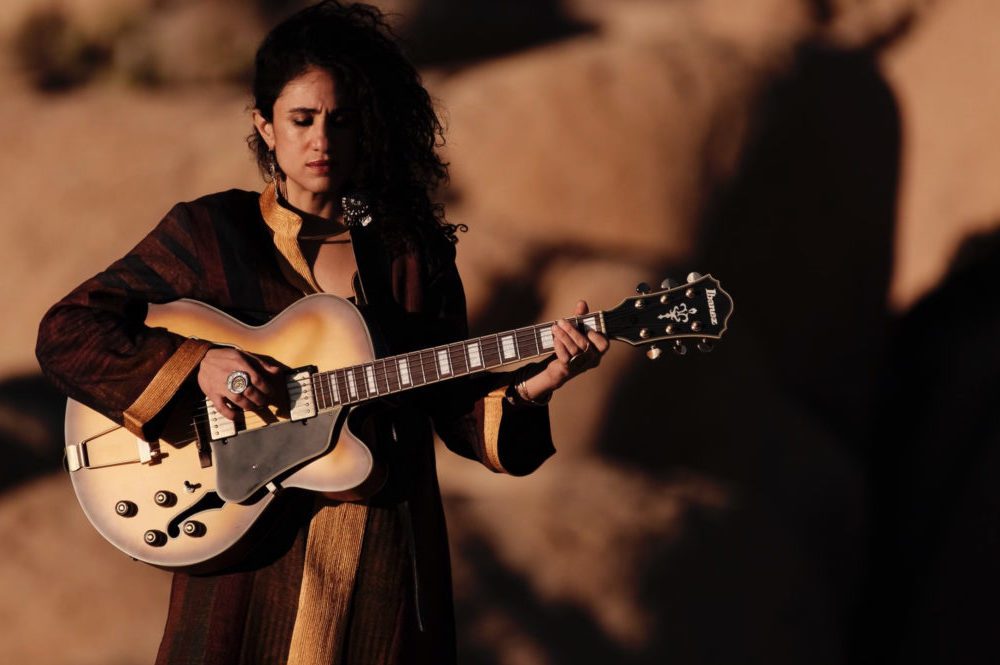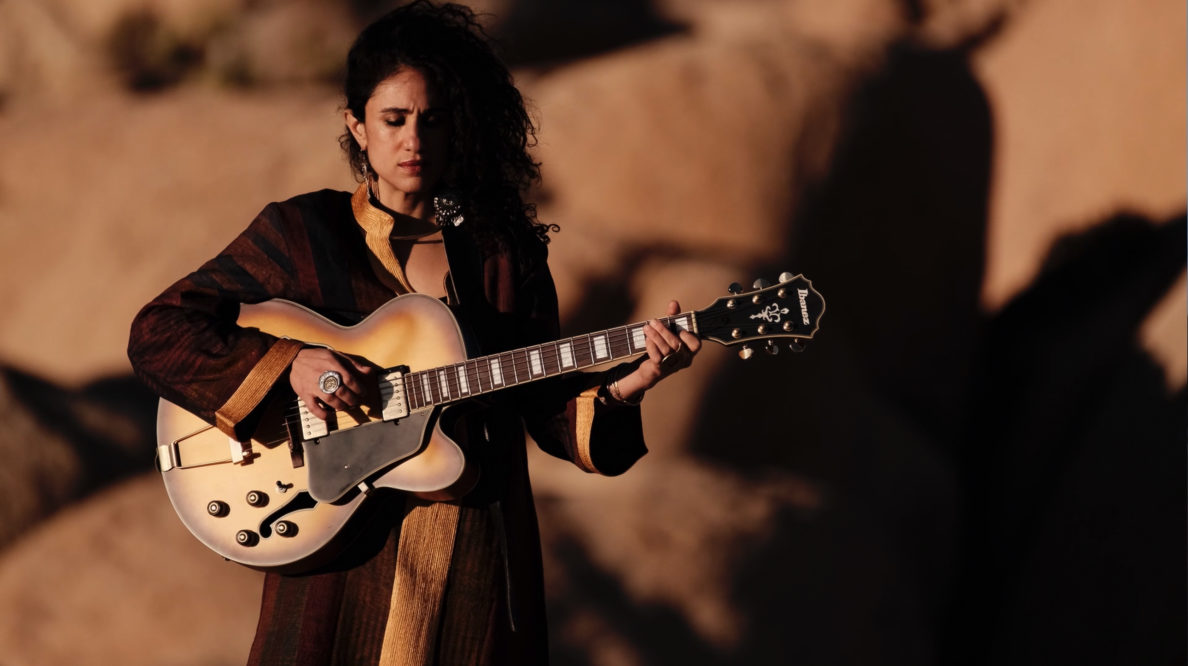

Naima Shalhoub’s music is not just for entertainment or artistry; it’s a form of social activism. In addition to being a singer, songwriter, and multi-instrumentalist, the Lebanese-American artist is a Restorative Justice practitioner who holds healing groups for women of color. Her upcoming album, Siphr (August 6) — like her first, Live in San Francisco County Jail — uses music to convey powerful messages of social change and resistance.
In the latest single off the album, “Five (The Calling),” soul influences are evident, with rich harmonies accompanied by piano. Then, strings and other instruments join the mix as the singing becomes more erratic and discordant. “You may hear a thousand voices calling you another way/But you will know that heavenly sound calling your name,” Shalhoub sings.
As the centerpiece of the album, “Five (The Calling)” was meant to be a “still point” that began one way and ended another, she told Audiofemme over the phone soon after attending a #BlackLivesMatter rally.
The track aims to send the message, “Don’t get distracted, don’t get it twisted, you have to learn what your integrity is,” she explains. “For me, it’s crying out to God, to the most high, the people who came before me, the Audre Lordes and the Angela Davises that aren’t my blood ancestors but that I feel like are my political ancestors — Billie Holiday and Nina Simone — the teacher will emerge when you’re ready, so always be attuned to that frequency of grace.”
The rest of the album contains blues and jazz influences, as well as Southwest Asian and North African folk, with lyrics in both Arabic and English and a Middle Eastern guitar-like instrument called an oud accompanying Shalhoub’s voice. However, she also says more modern artists she listened to growing up, like Lauryn Hill and Erykah Badu, influenced the LP. “I wanted it to feel ancient in some ways and futuristic in other ways,” she explains.
The tile Siphr is Arabic for “zero,” which for Shalhoub symbolizes “everything and nothing, which is grace and the grace of the creator.” The track titles are numbered from 1-9, signifying “the journey of finding oneself in relationship to others,” Shalhoub explains.
Some of the songs are more relevant than ever right now. The lyrics to the bluesy “Four (Roumieh Prison Blues)” were written by men incarcerated at Lebanon’s Roumieh Prison, which is meant to illuminate the struggles that incarcerated people face. “Eight (Arab-Amerikkki)” features Palestinian-American producer Excentrik rapping about white supremacy against infectious piano and oud melodies.
The album release was originally scheduled for June 19 but was delayed to avoid taking the spotlight away from the Black community. Shalhoub finds it synchronistic that it’s coming out during a time when people are speaking out about racism; she sees the music as “crying out for freedom in solidarity with others,” she explains. “I certainly, as a brown woman, stand so firmly in solidarity with my Black kin. That means it’s an ongoing process and that also means dismantling the internalized colonialization I carry as a brown woman from a brown land.”
As someone who has survived sexual trauma and other abuses in her life, this album was also a way for Shalhoub to transmute her own experiences of injustice. “This was like emancipation for me to write this album,” she says. “My spirit needed it. My ancestors needed me to sing it. My creator needed me to sing this.”
Follow Naima Shalhoub on Facebook for ongoing updates.




